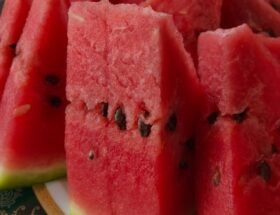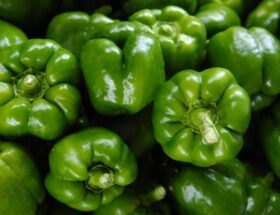Welcome to GertieBlu, where we explore everything fresh, healthy, and delicious! Today, we’re taking a bite into one of nature’s most versatile and underrated fruits: pears. Whether you’re a fan of their juicy sweetness or enjoy them in savory dishes, pears are not only delicious but packed with nutritional goodness. Let’s take a closer look at the main types of pears and their health benefits!
The Main Types of Pears
Pears come in a variety of shapes, sizes, and flavors. Here are some of the most popular types you’ll find in your local grocery store or farmers’ market:
- Bartlett Pears
Perhaps the most well-known variety, Bartlett pears are juicy, sweet, and perfect for snacking. They have a classic pear shape and turn from green to yellow as they ripen. If you’re a fan of canning or making preserves, these pears are your best bet. - Anjou Pears (Red and Green)
Anjou pears are known for their firm texture and mild, sweet flavor. These pears don’t change color as they ripen, so their green or red skins stay the same. Great for salads or baking, they hold up well when cooked. - Bosc Pears
With their elongated necks and russet brown skins, Bosc pears are a standout in the pear family. Their firm texture and spiced flavor make them ideal for baking or poaching. They are the perfect choice for any recipe where you want the pear to maintain its shape. - Comice Pears
Known as the sweetest of all pears, Comice pears are often found in holiday gift baskets. Their creamy texture and rich flavor make them perfect for pairing with cheese or enjoying as a decadent treat on their own. - Forelle Pears
Small but mighty, Forelle pears have a sweet-tart flavor and beautiful red freckles on their yellow skin. Their crispness makes them a great snack, especially if you prefer your pears on the firm side. - Seckel Pears
These miniature pears are adorably small but pack a sweet punch. Their dense, sugary flesh makes them a fun, bite-sized snack, or they can be poached for a unique dessert.

Health Benefits of Pears
Pears are not just tasty; they also offer a range of health benefits that make them a smart addition to your diet.
- Rich in Fiber
One of the standout features of pears is their high fiber content. A medium-sized pear contains about 6 grams of fiber, which is about 24% of the recommended daily intake. Fiber helps with digestion, regulates blood sugar, and can keep you feeling full longer—great for those looking to manage their weight. - Packed with Vitamins and Minerals
Pears are an excellent source of vitamin C, which supports your immune system and helps your body absorb iron. They also contain smaller amounts of potassium, vitamin K, and copper, all of which play a role in maintaining overall health, from bone strength to nerve function. - Antioxidant Power
Pears are loaded with antioxidants, including vitamin C and phytonutrients such as flavonoids. These antioxidants help fight off free radicals in the body, reducing the risk of chronic diseases and supporting healthy aging. - Good for Heart Health
The fiber in pears not only supports digestion but also contributes to heart health by lowering LDL cholesterol levels. In addition, pears contain potassium, which helps regulate blood pressure by balancing sodium levels in the body. - Low Glycemic Index
Pears have a low glycemic index, which means they don’t cause a rapid spike in blood sugar levels. This makes them a great fruit for people managing diabetes or anyone looking for sustained energy without a sugar crash. - Boosts Gut Health
Pears contain both soluble and insoluble fiber, which feed the healthy bacteria in your gut. This helps maintain a balanced gut microbiome, which is linked to everything from improved digestion to better mental health. - Hydrating and Low in Calories
Pears are made up of about 84% water, making them an excellent hydrating snack. Despite their sweetness, they are low in calories, with an average medium pear containing about 100 calories. That makes them a guilt-free option for anyone looking to satisfy their sweet tooth.
How to Enjoy Pears
Pears can be enjoyed in a variety of ways, making them a versatile addition to any meal:
- Fresh: Enjoy them as they are, or slice them up for a fresh snack.
- Baked: Try pears in pies, crisps, or roasted with a bit of cinnamon and honey.
- Poached: Poaching pears in red wine or syrup turns them into an elegant dessert.
- Salads: Add slices of pear to salads for a sweet and crunchy contrast to greens and cheese.
- Cheese Boards: Pair with blue cheese, brie, or aged cheddar for a perfect balance of flavors.

Conclusion
Pears are an easy and nutritious addition to any diet. Whether you’re snacking on them raw or incorporating them into a delicious recipe, their health benefits are undeniable. With their high fiber content, low glycemic index, and rich supply of vitamins and antioxidants, pears are a true superfood that can support everything from heart health to digestion.
Next time you’re at the grocery store, why not pick up a few different varieties and experiment with their flavors? Your taste buds and your body will thank you!
Until next time, stay healthy and curious!
GertieBlu









